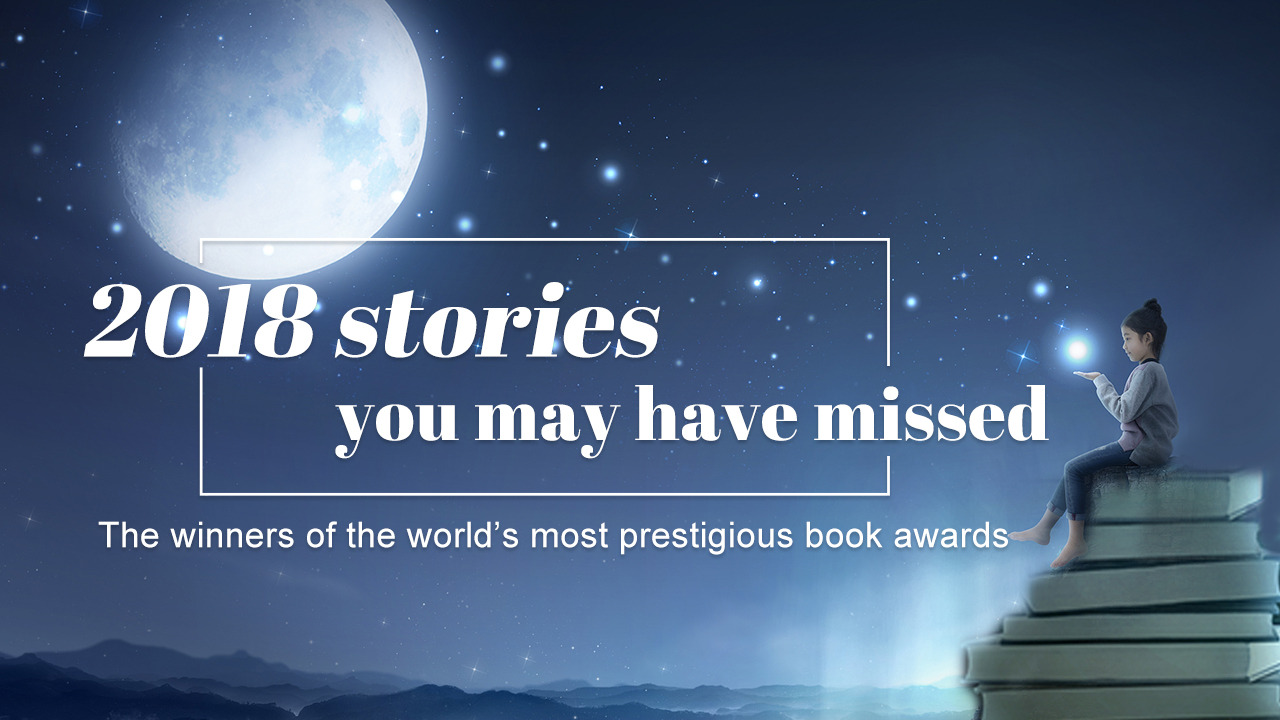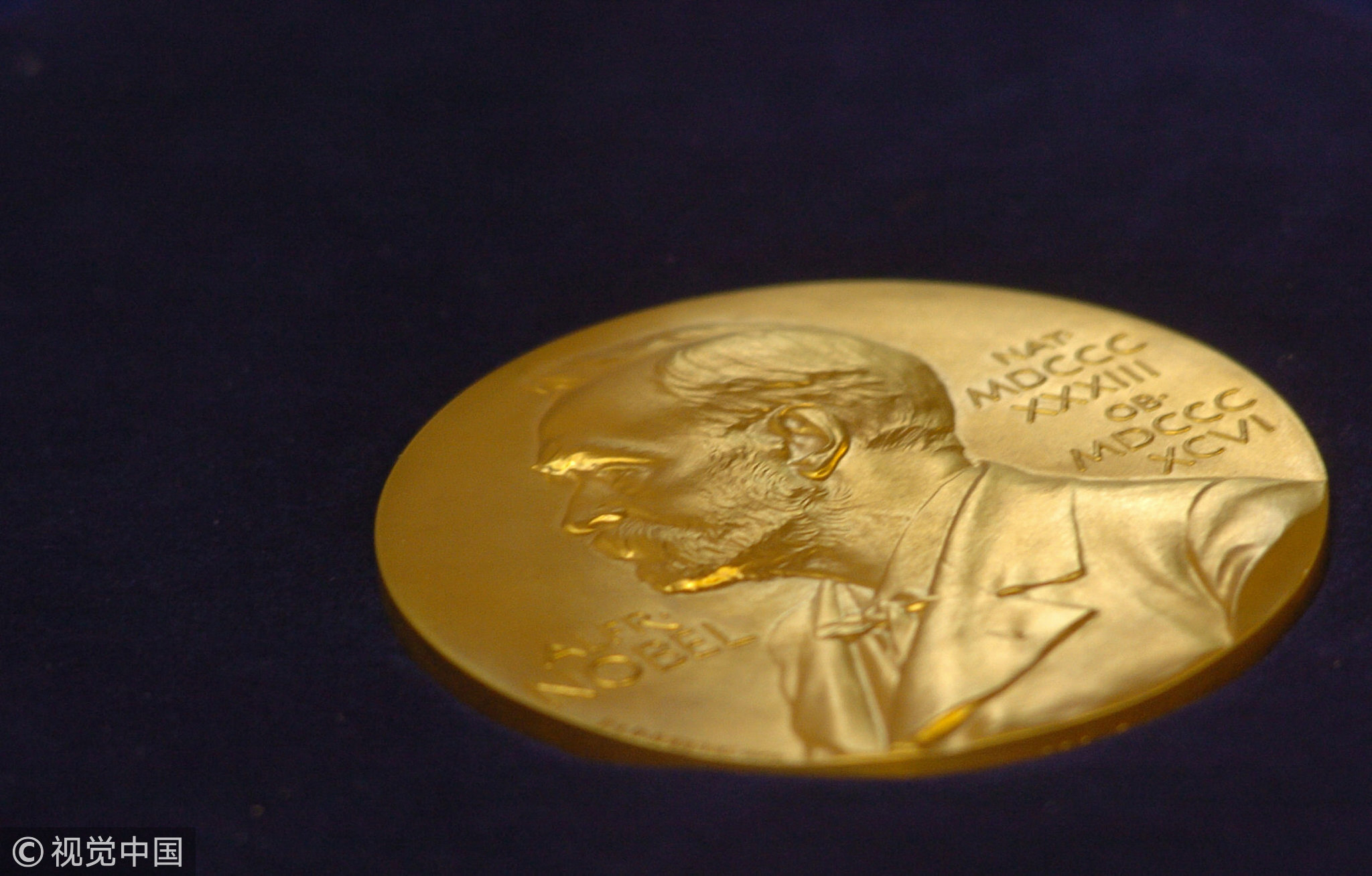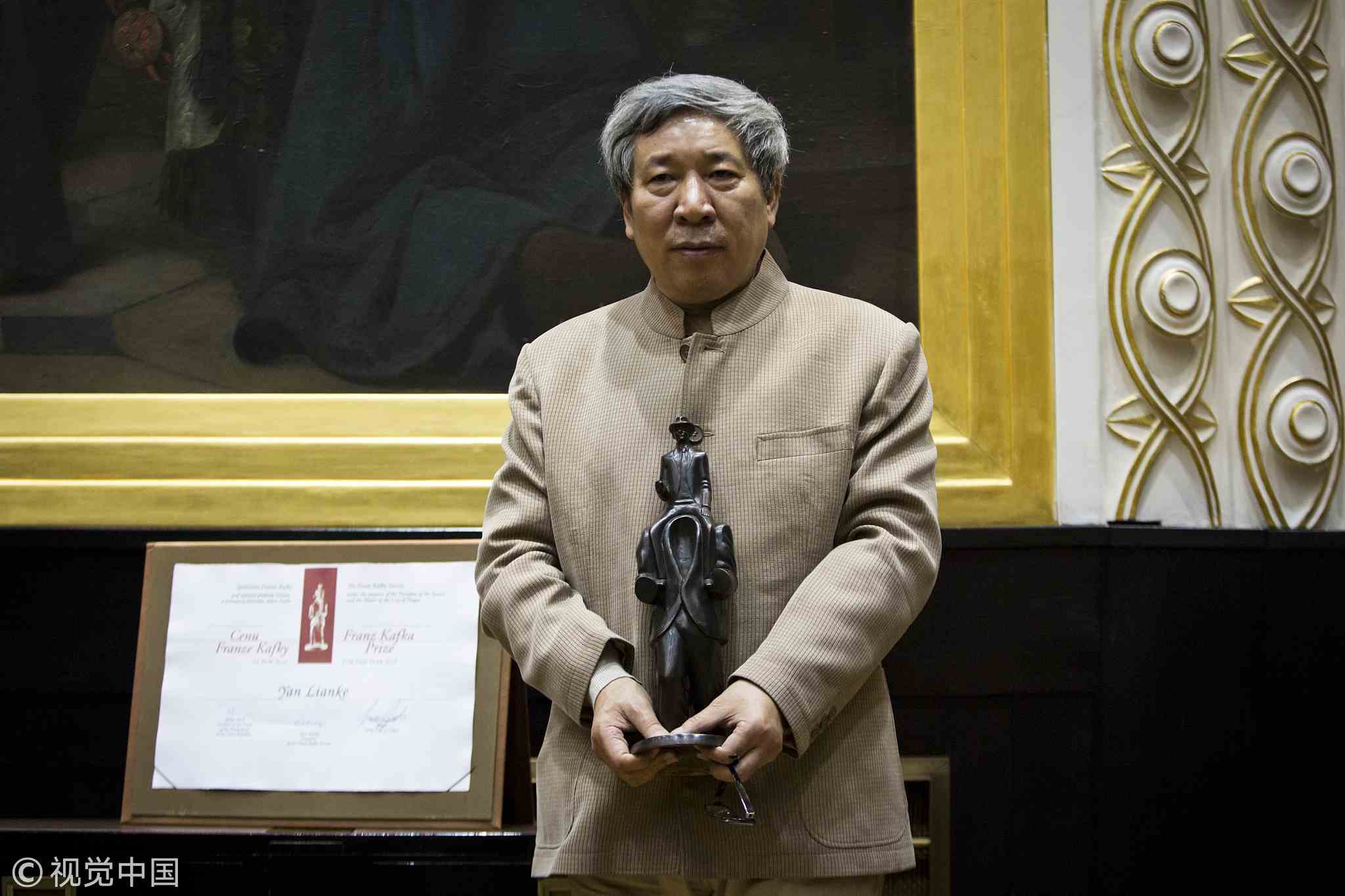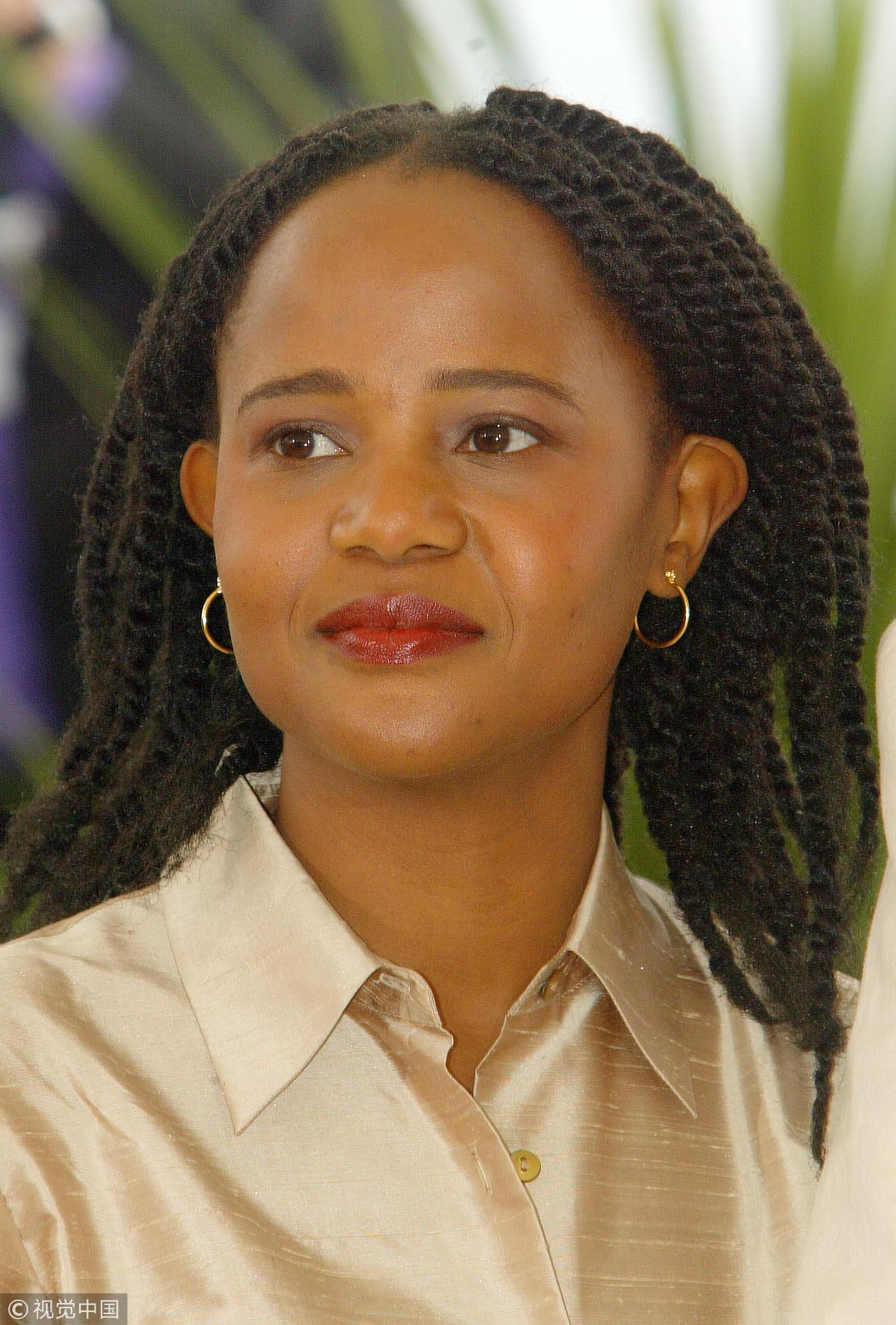
Books
21:25, 28-Dec-2018
The winners of 2018's most prestigious book awards
Updated
20:38, 31-Dec-2018
Wu Yan

With the absence of the Nobel Prize and the unexpected standing-out of other international literature prizes and their winners, 2018 was unforgettable for the literary world
Nobel Prize in Literature not awarded
For the first time in 70 years, the awarding of the Nobel Prize in Literature was postponed in the shadow of Sweden's own #MeToo moment.

File photo of a gold replica of the Nobel medal. /VCG Photo
File photo of a gold replica of the Nobel medal. /VCG Photo
The Swedish Academy was fallen apart due to the internal dispute over the handling of a sex scandal, in which Jean-Claude Arnault, husband of Academy member Katarina Frostenson, was accused of sexually assaulting 18 women then by taking advantage of his influence in Stockholm's culture scene.
The man has received Academy funding to run his cultural club for years, and was reportedly tipping off names of some Nobel Prize laureates before the announcement since 1996. He was convicted of rape and sentenced to two years in prison in a Stockholm court in October.
Amid the “crisis of confidence,” the Academy decided to take massive reform and scheduled to award two prizes next year.
To fill the void, More than 100 Swedish intellectuals jointly formed a new prize-giving body, the New Academy. The New Academy Prize in Literature was awarded to Maryse Conde, Guadeloupean author of some 20 novels, on October 12, 2018.

Maryse Conde, author from Guadeloupe living in Paris, delivers a speech for accepting the New Academy Prize in Literature in Stockholm, Sweden, December 9, 2018. /VCG Photo
Maryse Conde, author from Guadeloupe living in Paris, delivers a speech for accepting the New Academy Prize in Literature in Stockholm, Sweden, December 9, 2018. /VCG Photo
Ivan Wernisch: Winner of the Franz Kafka Prize
The Franz Kafka Prize was hailed for its “uncanny ability of predicting future Nobel laureates,” after two of its winners won the Nobel Prize the same year, Austrian writer Elfriede Jelinek (2004) and U.S. playwright Harold Pinter (2005).
Awarded since 2001 by the Franz Kafka Society based in Czech Republic, the prize aims to “reward artistically exceptional literary production of a contemporary author whose work addresses readers regardless of their origin, nationality or culture, like the work of Franz Kafka.” Kafka is considered as the most influential literary figures in the 20th century.
This year's winner went to Ivan Wernisch, a Czech poet, writer, journalist and translator. When commenting on the “chief author of the 1960s,” the awarding organization praised his poetry for reflecting “dream-like fractions of reality” and his work, which is brimming “existentialism” and extensively uses neologisms.
Before winning this international prize, Wernisch was awarded four times by his native country. His works have been published in many languages including English, French and Polish.

Chinese writer Yan Lianke accepts the Franz Kafka International Literary Award at the Prague's Old Town Hall in Czech Republic, October 22, 2014. /VCG Photo
Chinese writer Yan Lianke accepts the Franz Kafka International Literary Award at the Prague's Old Town Hall in Czech Republic, October 22, 2014. /VCG Photo
Appreciating Asian writers' contribution to cultural tolerance, the international prize gave the honor to Japanese writer Haruki Murakami in 2006 and Chinese writer Yan Lianke in 2014.
Edwidge Danticat: Winner of the Neustadt International Prize for Literature
The Neustadt Prize, set up by the University of Oklahoma's magazine World Literature Today, is one of a few international literary awards that are eligible for any living author from anywhere in the world.
As a lead-up to the Swedish Academy's annual selection, the biennial award was viewed as the “American Nobel,” because many of its winners, nominees and jury members are winners of Nobel Prize in Literature.
In the end of last year, the magazine announced Edwidge Danticat as the 2018 laureate of Neustadt International Prize for Literature. The Haitian-American is author of stories, essays, travel commentary, film scripts, Young Adult (YA) novels and four literary novels.

File photo of Edwidge Danticat. /VCG Photo
File photo of Edwidge Danticat. /VCG Photo
Her works often reference the literary history of Haiti and the Caribbean and are innovative in form and structure, often vividly depicting the details of immigrant life in New York and Miami.
The stories gained many honors, such as qualifying for the finals for the National Book Award and winning the National Book Critics Circle Award, and she herself was granted a MacArthur fellowship in 2009.
The “American Nobel” is not unfamiliar to Chinese writers. Poet Duo Duo was the first Chinese winning the prize in 2010, while avant-garde writer Canxue was nominated for the prize in 2016.

SITEMAP
Copyright © 2018 CGTN. Beijing ICP prepared NO.16065310-3
Copyright © 2018 CGTN. Beijing ICP prepared NO.16065310-3